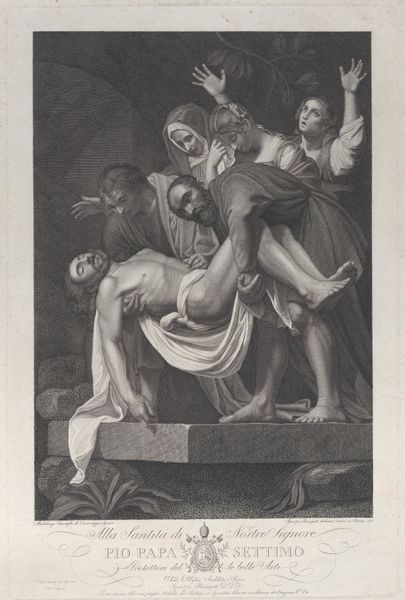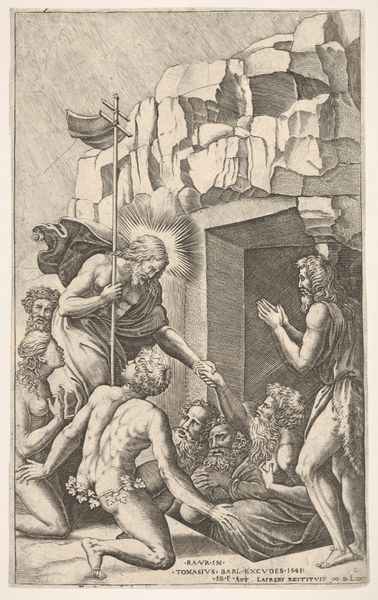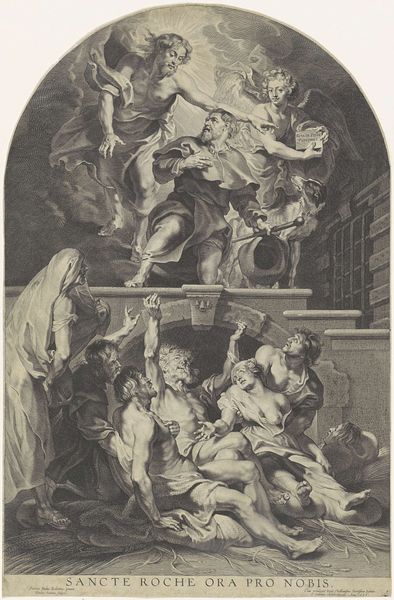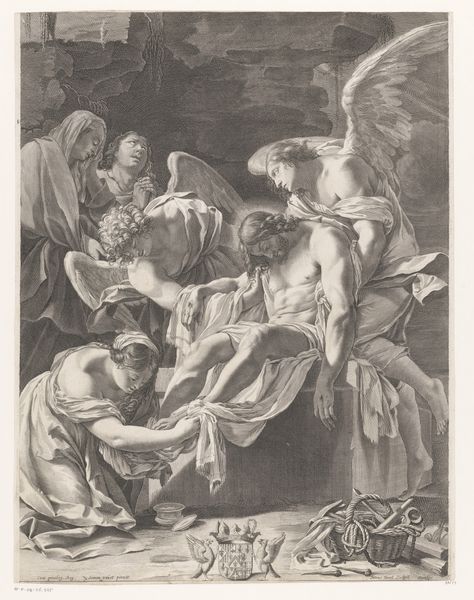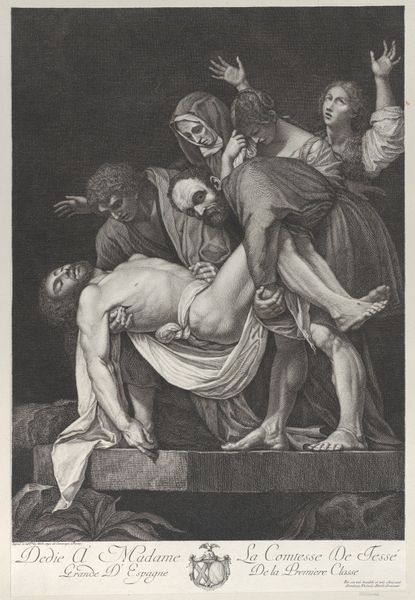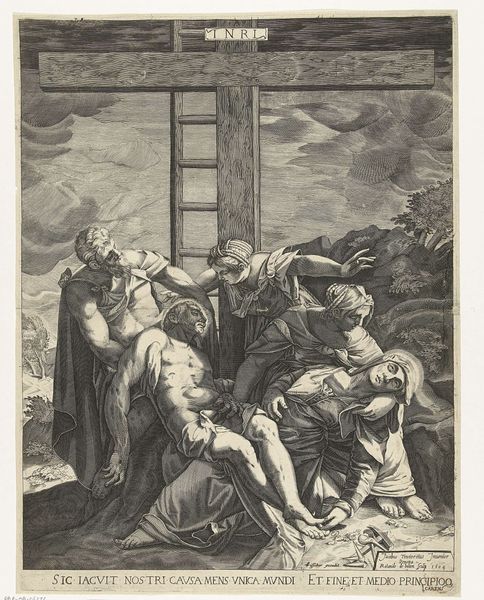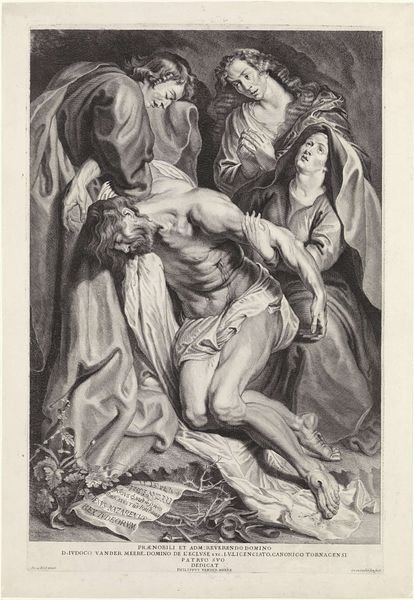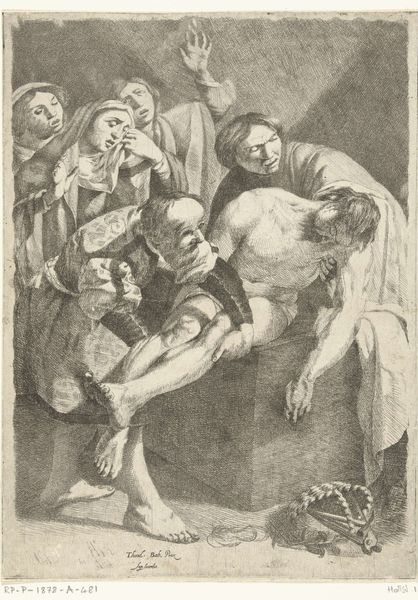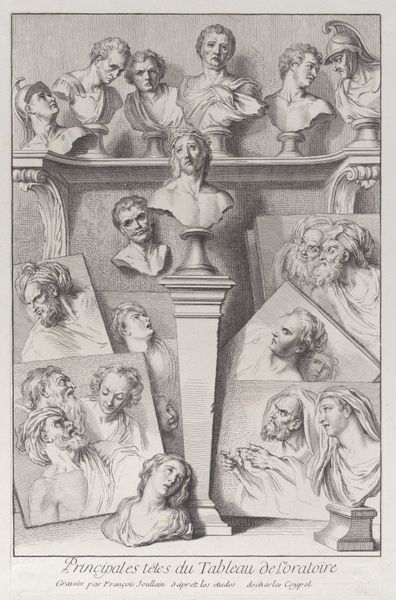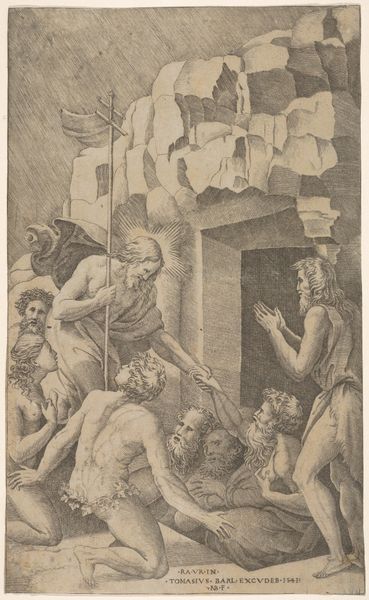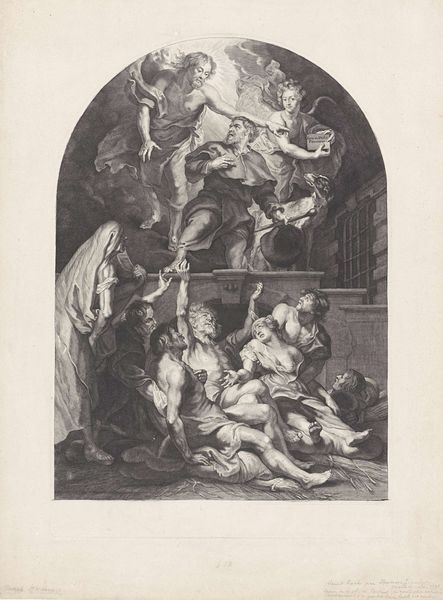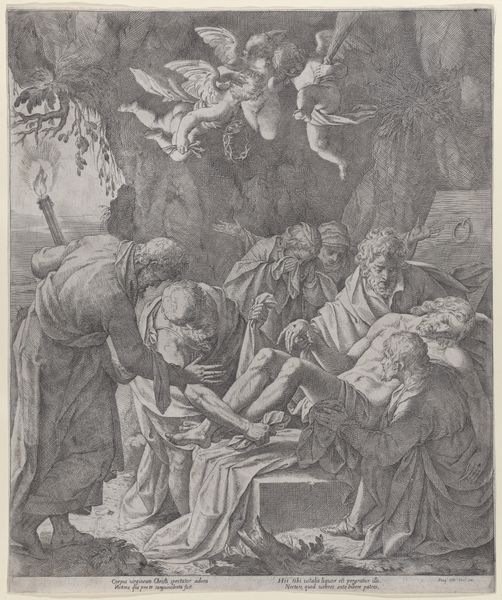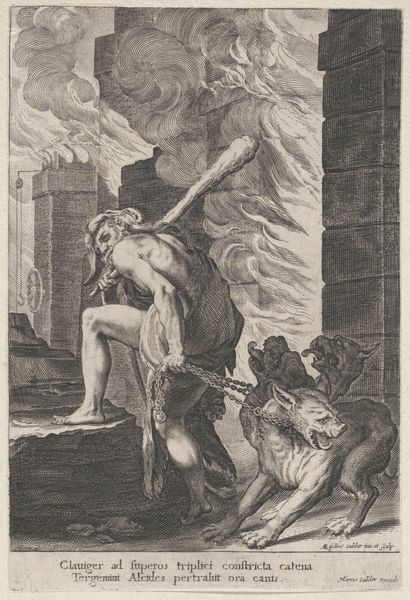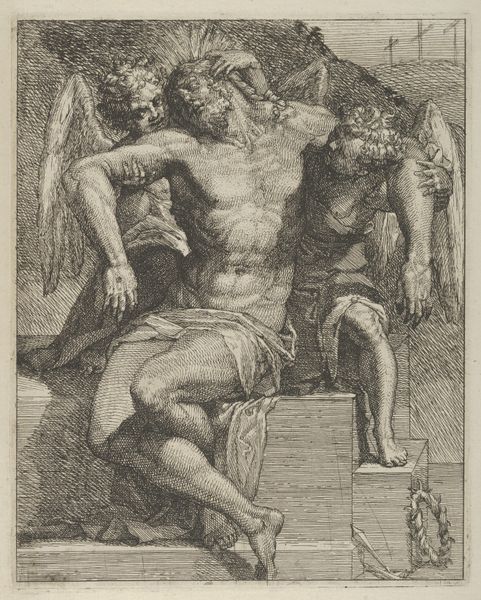
print, engraving
#
baroque
# print
#
figuration
#
form
#
line
#
history-painting
#
engraving
Dimensions: height 325 mm, width 202 mm
Copyright: Rijks Museum: Open Domain
This print of the Entombment was made by Jonas Suyderhoef, probably in the mid-17th century. As an engraving, its appearance relies entirely on the skilled manipulation of metal, and the application of tremendous physical effort. The engraver would have used a tool called a burin to cut lines into a copper plate. The depth and density of these marks determine the tones and textures we see, from the dark shadows of the tomb to the delicate folds of drapery. The stark contrast emphasizes the emotional weight of the scene, as Christ’s body is carefully lowered into the grave. Consider the sheer labor involved in this process. Every line is a testament to Suyderhoef's control and precision. The image could then be reproduced multiple times, making it accessible to a wider audience. This reproductive capacity speaks to the printmaker’s essential role in disseminating knowledge and imagery. It prompts us to reconsider hierarchies of art and craft, and to value the skill involved in processes of reproduction.
Comments
No comments
Be the first to comment and join the conversation on the ultimate creative platform.
